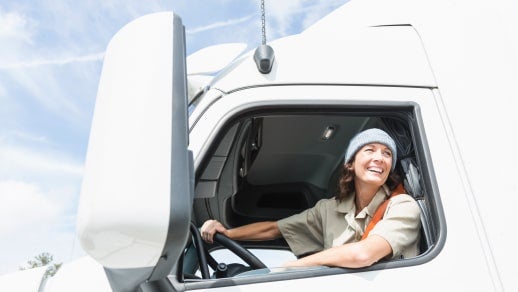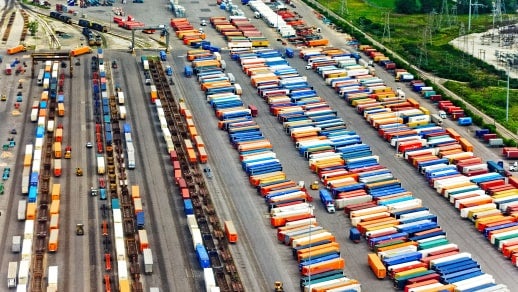Owner-Operator Insurance Coverage
Understanding owner-operator insurance coverage needs
Learn how the right insurance coverage helps protect your trucking business.
Owner-operator insurance coverage is essential for protecting your truck, cargo, and overall business operations. With the right policies in place, you can stay compliant with regulations, manage risks effectively, and safeguard your livelihood on the road.
- Connect with trucking insurance specialists
- Explore market options with tailored solutions
- Coverage for load board requirements


Connect with trucking insurance specialists
Guidance from professionals who understand the unique risks and needs of owner-operators.
Working with insurance specialists who focus on the trucking industry helps owner-operators select coverage that aligns with their operations. From policy requirements to claims and renewals, expert guidance makes it easier to understand your options and maintain the protection your business needs.
Explore market options with tailored solutions
Coverage options that reflect the specific needs of your operation.
Insurance requirements vary depending on freight type, operating authority, and distance traveled. Comparing different coverage options allows owner-operators to find policies that meet both compliance standards and business needs while managing overall costs.


Coverage for load board requirements
Meet load board insurance requirements with coverage that supports your hauling opportunities.
Many load boards require proof of insurance before granting access to freight. Having the right policies and easy access to insurance certificates helps avoid delays and ensures continued access to loads. Understanding these requirements is an important step for owner-operators who want to expand hauling opportunities and stay compliant.
Owner-operators need several types of insurance to fully protect their business, truck, and cargo. Primary liability insurance is required by law and covers damages or injuries you cause to others. Physical damage insurance protects your truck against accidents, theft, and vandalism. Cargo insurance covers the freight you haul in case of loss or damage. Non-trucking liability and occupational accident insurance provide coverage when you’re not under dispatch and for work-related injuries. Choosing the right combination of these policies ensures you’re compliant, financially protected, and able to keep your business running smoothly in any situation.
On average, single owner-operators with their own authority can expect to pay $8,000 and $15,000 per year for full coverage. Those leased to a motor carrier typically pay less since the carrier often provides primary liability insurance. Shopping around, working with a specialized trucking insurance agency, and maintaining a clean driving record can help you secure better rates and more comprehensive coverage that fits your business needs.
Several factors influence the cost of your trucking insurance. Your driving record plays a significant role—accidents and violations can lead to higher premiums. The type of freight you haul also matters, with hazardous materials or high-value cargo increasing costs. Your truck’s age, value, and storage location impact physical damage insurance rates. Operating radius, experience level, and whether you run under your own authority or lease onto a carrier also affect pricing.
Owner-operators can lower their trucking insurance costs by maintaining a clean driving record, avoiding claims, and taking safety courses that may qualify them for discounts. Choosing a higher deductible can reduce premiums, though it means paying more out of pocket in the event of a claim. Bundling policies—such as combining liability, physical damage, and cargo insurance—can also help save money. Additionally, working with an insurance agency that specializes in trucking can ensure you get the best rates tailored to your operation.
Yes, but the type and amount of insurance you need depend on your lease agreement. Most motor carriers provide primary liability insurance, which covers damages or injuries to others in an accident. However, owner-operators are typically responsible for their own physical damage insurance to protect their truck, as well as cargo insurance, occupational accident coverage, and non-trucking liability insurance for times when they’re not under dispatch. Always review your lease agreement to understand what’s covered and work with an insurance agency to ensure you have the right protection for your business.
Protect your trucking business with the right coverage
Flexible owner-operator insurance coverage provides the protection needed to keep your trucking business compliant and financially secure. By understanding insurance requirements, exploring available options, and seeking expert guidance, you can build a coverage plan that fits your operation and safeguards your future on the road.